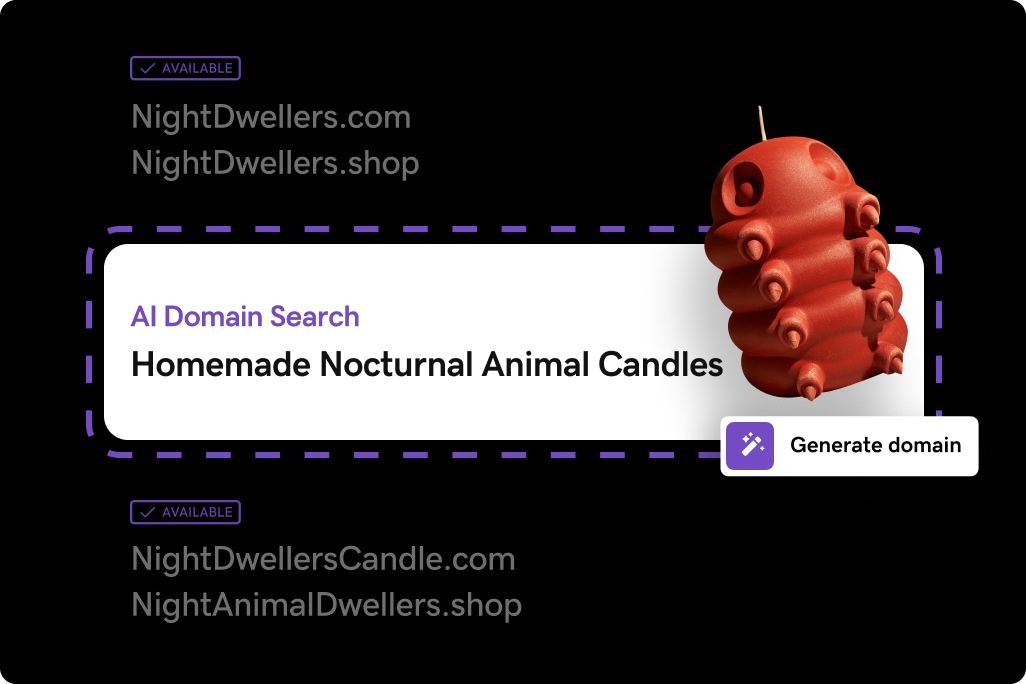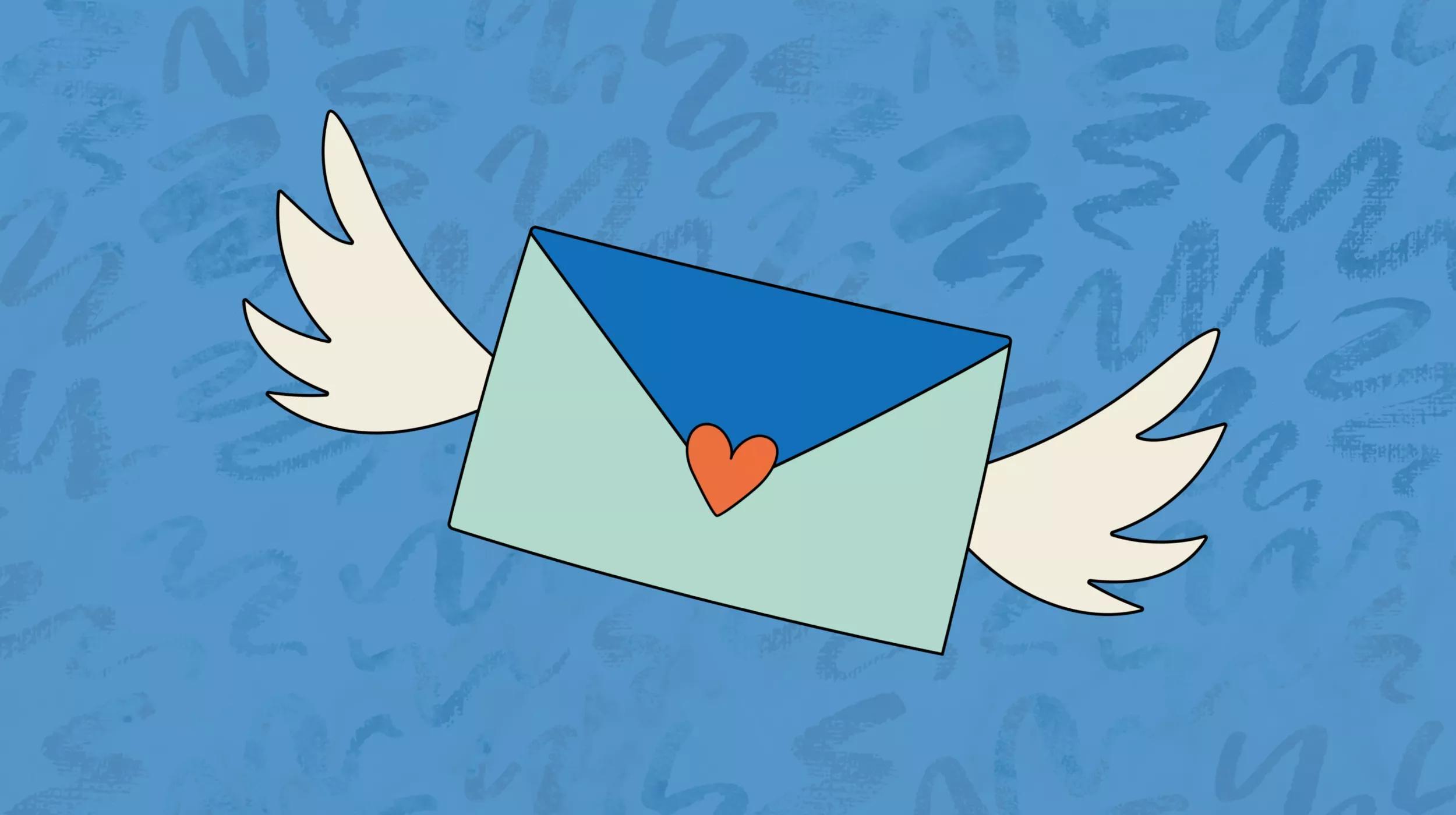If you're thinking about starting a business online or just want your own blog or website, you're likely looking at domain names. Knowing which variations of a domain name you should buy can be confusing because there are so many options. There is .com, .org, .net, .site, .shop, .ai, and the list goes on.
As you’re looking at the many options available to you, there’s a chance you might start considering purchasing multiple domains in bulk — just to make sure no one else takes the cool idea you have for a website.
The question is, how domain name variations should you own? And, is there any benefit or any downsides to owning more than one?
In this post, I’ll share why owning multiple domain variations is a good idea. On the flip side, I’ll also uncover the negatives of owning numerous domain name variations. Hopefully, this will help you to make the best decision for your unique needs.
If you believe your brand name will be a household name with a significant reach, how many variations to purchase may become a much more difficult question to answer. Of course, you cannot predict the future. But, you can at least consider the possibilities and make a better decision with more facts in hand. So let’s dive in!
Launch your business in minutes with GoDaddy Airo™
What do I mean by domain name variations?
While domain name variations can mean purchasing typos of your domain name or your domain name with additional words or letters, that’s not the focus of this post. Though a case can certainly be made for purchasing typos of your domain name.
For example, I had a blogger friend who owned a pretty popular website, and a different blogger purchased an extremely similar version of her domain name (instead of herdomain.com it was herdomains.com), swiped most of her copy, and plummeted her search engine ranking.
Instead, when referring to domain name variations, I’m referring to the domain extensions you can purchase, and how many would be best to buy.
The question I’d like to help you answer is, rather than just buying www.myawesomesite.com, should you also purchase www.myawesomesite.club, www.myawesomesite.info, www.myawesomesite.blog, www.myawesomesite.net, etc?
You can read GoDaddy’s full domain extensions guide to get some tips and ideas on which extensions are best for your business or brand. Then, come back here to settle the debate for yourself on how many extensions you should purchase.
Benefits of owning multiple domain variations

There are a handful of benefits to owning multiple domain name variations, even if your brand isn’t yet (and may not ever become) a household name. These benefits include, but aren’t limited to:
- Protecting your brand name/company name
- Helping with brand recognition
- Assisting in effective content delivery
You may be wondering how exactly purchasing more than one domain variation can help you with things like this. Let’s break it down.
Multiple variations of a domain name help protect your brand name
It's essential to build brand awareness with a business, and owning multiple domain variations is one way that will help you. When you own the most popular top-level domains (TLDs) for your brand, it reduces the chances that someone else will want to or try to purchase a variation of it.
For example, if you own the .com, .net, and .org, you’ve pretty much cornered the market on your domain name.
It’s also worth noting that there are cybersquatters who buy domain names with the intent to sell them for a profit. They have no intention of actually creating content under those domains. Instead, they buy them and hold them until someone purchases another domain extension. Then, they send you an email offering to sell you the domain.
I own morethanphotographs.com and get a lot of emails offering to sell me morethanphotographs.net, .org, .photo, etc.
Considering I pay less than $20 per year with GoDaddy for my .com domain, I can honestly tell you I have no interest in spending thousands for the other domain name variations people have emailed me about. Still, perhaps I could have saved myself the hassle if I’d purchased a few additional extensions of my intended domain when I bought the .com in 2008.
Cybersquatters and protecting your brand may be worth the investment in multiple domain name variations. This way, if someone tries to buy a domain variation that looks like your brand, they will be less likely to be able to do so.
Multiple domain name variations aid in brand recognition
Let’s say for some reason another person does purchase a domain extension for your website and starts posting content with it. Your brand now has the potential of being diluted.
When someone sees your business name, you want them to know it’s yours.
When you own multiple domain extensions you can rest a little easier knowing that when you share your website on social media and in marketing campaigns your brand is the one that will start to be recognized. And, by pointing the .net and .org variations of your domain to the .com you can help ensure that the people looking for your website find it.
Multiple variations of a domain name help you test different content delivery channels
You can use domain variations to test landing pages, different blogging platforms, etc. This can also be a great way to determine which combinations of keywords are most effective and if different sales copy works better with your audience.
Once you know this information, you can redirect all your domain name variations to one website and focus all of your energy on the highest-performing combinations.
Drawbacks of owning multiple variations of a domain name
As with everything in life, there are pros and cons to owning multiple domain name variations. With that in mind, now let’s explore why it might not be such a great idea to buy too many domain names.
They include, but aren’t limited to:
- It can be costly
- It’s time consuming
- Management can be a pain
Let’s break these cons down too, shall we?
Multiple domain name variations add up quickly

This is perhaps the most obvious negative of owning multiple domain names, and it shouldn't be ignored. You can end up spending a lot of money when you own multiple domains. This can eat into your profit margins — not just the first year, but every year. You also have to factor renewal of your domains, SSL certificates, hosting, and whether or not you want your domains private — you'll have to pay extra for that as well.
Is the prospect of spending multiple hundreds of dollars worth it? This is where you have to get serious about your plans for the future. After all, if you end up with a global brand, the odds of competitors and cybersquatters scooping up the various extensions related to your domain will increase.
Multiple variations of a domain name can be time-consuming to deal with
That is if you actually use them for testing copy and content delivery. Keeping track of multiple sites can take a lot of time. Of course, you could just purchase them, and set them up to automatically redirect them to the main domain you intend to use. This will take a lot less time to manage because you can set it and forget it.
This leads me to the final disadvantage.
Multiple domain name variations can be difficult to manage
If you do opt to purchase multiple domain extensions, it’s a good idea to:
- Have them all renewed on the same date
- Have them set to auto-renewal, and
- Purchase all the variations from the same domain provider
If you have multiple renewal dates, several logins, and have to “remember” to renew them, you could face the hassle of last-minute scrambling to make the purchase before the domain expires.
I’ve had this happen to me in the past, and it was not fun! I didn’t have my domain set up to auto-renew, and at zero hour I was trying to find my username and password so I could maintain ownership. I don’t recommend this.
Furthermore, set a reminder in your calendar of when your credit card on file expires. This way you’ll automatically be reminded to update credit card information for any billing accounts you have. I’m all about the automatic reminders for all the things!
How many variations of a domain name should you buy?
We’ve covered a lot in this post already. Now, the final question you probably have if you have decided to purchase multiple domain name variations is likely — how many should you get? The unfortunate thing is, this is a very difficult question to answer.
Based on all of my research, what I found is that the ideal bare minimum is three. It’s a good idea to purchase the .com, .net and .org extensions. After that, it’s really up to you. To come to the best conclusion for yourself, ask yourself the following questions:
- Is this domain purchase for a business or hobby website?
- You might not care if anyone purchases other extensions related to your domain if it’s just a hobby site. Then again, many hobbies can become businesses…
- How much can I budget for these extensions?
- The more you can budget, perhaps the more extensions you should purchase.
- Do I anticipate a competitor trying to capitalize on my name?
- The answer to this question, trademarking your brand name may be all you really need to do to protect yourself.
- Does a fancy domain extension appeal to you?
- Some ecommerce store owners may want to purchase extensions like .shop and entrepreneurs may want to grab .biz. Or, if you run a Facebook group or other online community, .club might make a lot of sense for your brand
Hopefully, after reading this, you at least are thinking more about the possibilities. While you shouldn’t overthink this too much, I’d advise you not to just blindly dismiss this either.
Consider the pros and cons of owning multiple domain names, research the best ones to buy, and the ones you should avoid. Just make sure you're making the best purchasing decisions for your brand and budget.








